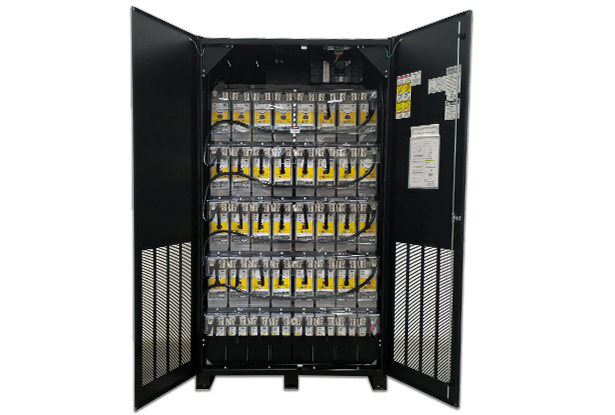Battery Backup Systems for Industrial Use: Key Factors to Consider
In today’s industrial landscape, maintaining a reliable power supply is critical for operational continuity. Power outages, fluctuations, or disruptions can lead to significant downtime, financial losses, and even safety hazards. Battery backup systems have emerged as a vital solution for ensuring that essential equipment remains operational during power interruptions. However, selecting the right battery backup system for industrial use requires careful consideration of several key factors. In this blog, we’ll explore those factors to help you make an informed decision.
1. Capacity and Power Requirements
The first step in selecting a battery backup system is understanding your facility’s specific power requirements. Assess the total load that needs to be supported during an outage, including critical equipment, lighting, and safety systems. Battery capacity is typically measured in amp-hour (ah) or kilowatt-hours (kWh), so ensure that the system you choose can handle your peak load while providing sufficient runtime during outages.
2. Type of Battery Technology
Different types of battery technologies are available for backup systems, each with its own advantages and disadvantages. Common options include:
- Lead-Acid Batteries: Cost-effective and widely used. They come with some maintenance requirements that may be slightly more intensive than other chemistries.
- Lithium-Ion Batteries: Lithium-ion batteries are increasingly popular in industrial applications due to their compact size and reduced maintenance needs.
- Nickel-Cadmium Batteries: Known for their robustness and ability to perform in extreme temperatures, but they can be more expensive and can be expensive to recycle.
Evaluate the pros and cons of each technology to determine which aligns best with your operational needs and budget.
3. Runtime and Recharge Time
Consider the runtime required during a power outage. Depending on your operations, you may need a system that can provide power for several hours or even days. Additionally, evaluate the recharge time of the battery system. A faster recharge time can be critical for operations that experience frequent power interruptions, as it reduces the amount of downtime between outages.
4. Environmental Factors
Industrial environments can vary significantly in terms of temperature, humidity, and exposure to dust or chemicals. Ensure that the battery backup system you choose is suitable for the specific environmental conditions of your facility. Some battery technologies are more resilient to extreme conditions than others, so it’s essential to consider where the batteries will be installed.
5. Scalability and Future Needs
As your business grows, your power needs may change. Choose a battery backup system that allows for scalability, enabling you to expand capacity or add more units as needed. This flexibility ensures that your backup solution can adapt to future demands without requiring a complete overhaul.
6. Maintenance Requirements
Maintenance is a critical aspect of battery backup systems. Some technologies require more frequent maintenance than others, which can impact labor costs and operational efficiency. Assess the maintenance needs of the batteries and the overall system to ensure that you can meet those requirements without straining your resources.
7. Cost and Budget Considerations
While it’s important to choose a reliable and efficient battery backup solution, cost is also a significant factor. Evaluate the total cost of ownership, which includes initial investment, installation, maintenance, and potential replacement costs. Compare different options to find a solution that fits your budget while meeting your performance requirements.
8. Regulatory Compliance and Safety Standards
Ensure that the battery backup system you select complies with industry regulations and safety standards. This is particularly important in industrial environments where safety is paramount. Verify that the system has necessary certifications and adheres to guidelines set by relevant authorities to minimize risks associated with battery operation.
Conclusion
Selecting the right battery backup system for industrial use involves careful consideration of various factors, including capacity, battery technology, runtime, environmental conditions, scalability, maintenance, cost, and regulatory compliance. By taking the time to evaluate these aspects, you can ensure that your facility is equipped with a reliable backup power solution that minimizes disruptions and supports seamless operations. Make informed decisions today to protect your business from the uncertainties of power outages!
At Swift Industrial Power, we provide a wide variety of battery chemistries to meet your specific needs. Check out some of our product offering on our website or consult our sales team to work on the best possibly solution for your site.

